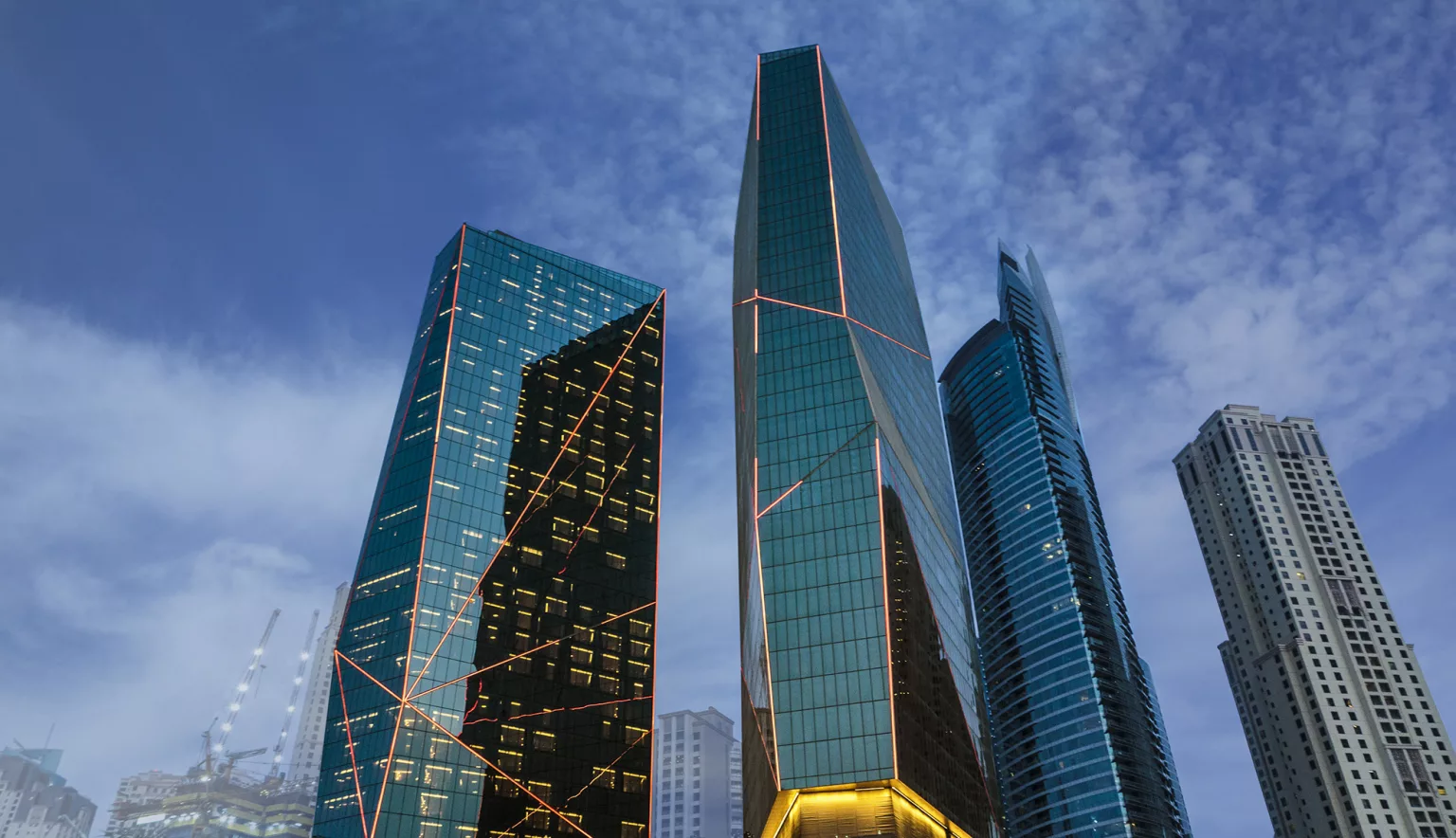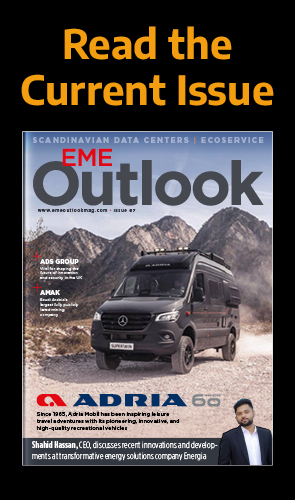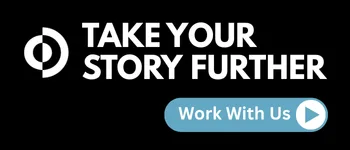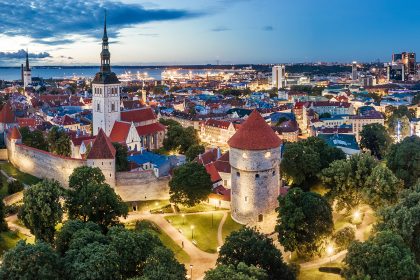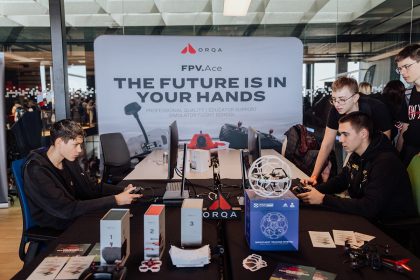Schüco Middle East epitomises its parent company’s standing as a leading supplier of façades and curtain walls, transforming urban environments with sustainable, high quality solutions.
FAÇADES FOR THE FUTURE
It is often said that first impressions count for a lot – according to the US Chamber of Commerce Foundation, 55 percent of initial judgements are made by what we first see.
In the world of architecture, therefore, appearance is everything.
Within the most crowded cities, it is the buildings cloaked in distinctive, complex, elegant architectural exteriors that catch the eye for miles around. The striking geometrics of the Shard in London, spiral of the One World Trade Center in New York, and Abu Dhabi’s Etihad Towers are all prime examples of this artistic side to construction.
Alongside the ability of façades and exteriors to mould perceptions with aesthetics, however, modern-day systems can offer an array of other benefits to buildings. Indeed, they are now crucial to the sustainability and functionality of many structures, managing light transmittance, enhancing energy efficiency and optimising acoustics.
“A thermally broken façade wouldn’t have even been considered in Dubai 15 years ago,” explains Alastair Common. “But now, buildings can’t do without them – they’re a standard of modern regulations, the requirements and demands for which are always rising.”
Common himself is one individual all too familiar with the growing capabilities of facades, curtain walls, windows, doors and everything in between. For the past nine years he has been working for Schüco, one of the world’s most prolific architectural aluminium systems companies.
“Honestly, I ended up where I am today through complete chance,” he explains.
“I was studying Civil Engineering at Glasgow University when I received an offer to play rugby professionally in Edinburgh, which I duly accepted. I played there for one year before moving out to Italy, signing for Benetton Treviso full time for three years.
“After that I joined a second division club on the premise that they would find me a part time job as I wanted to begin looking at my career after rugby. To cut a long story short, the President of the club knew the HR Director at Permasteelisa – one of the biggest façade construction companies globally.”
Something of a twist of fate, it seems that this critical redirection was meant to be. Today, Common has been standing as the Technical Director of Schüco Middle East for over nine years, a company that he is truly proud to work for.
“One of the really great things about Schüco is the fact that you’re working on many different projects at once,” he comments.
“We cover everything from doors to windows to skylights and curtain walls, and actually achieving and delivering highly specialised requirements across such a spectrum is easier said than done. You have to be highly knowledgeable in each category.
“It is a sector that offers a fantastic challenge on a daily basis; to see projects that start out as just pretty pictures on pieces of paper or a computer screen turn into a reality is an amazing feeling.”
INSPIRING URBAN LANDMARKS
With Schüco operating in 84 countries around the world, the company’s Middle East operation offers just a snapshot of the Group’s overall capabilities. Yet some of the most renowned developments showcasing its products have been delivered in this region.
This brings us back to Etihad Towers. A project consisting of five glass monoliths, Schüco’s UCC (unitised customised construction) 65 SG façade system was used to complete each tower’s fully glazed curtain walling, the project using 141,000 square metres of glass in total.
Completed in 2012, these buildings now collectively stand as one of Abu Dhabi’s leading urban landmarks.
“There’s a scene in Fast and Furious 7 where cars jump between two skyscrapers… that was filmed at Etihad Towers,” Common reveals.
Asked about Schüco Middle East’s upcoming projects, the Technical Director is also able to point to two different albeit similarly impressive ongoing developments that its façade systems are contributing to.
The first of these is Katara Towers in Qatar – a highly complex, mammoth build shaped like vertically standing “swords”, representing part of Qatar’s coat of arms, for which the company is creating a bespoke unitised curtain wall using cutting-edge, custom-designed panels.
“Katara Towers is a project that we’re extremely excited about,” Common expresses. “In a year and a half or two years’ time, it’s a project that everyone will recognise globally, on par with the Burj-Al Arab in terms of both beauty and complexity.”
Coupling Katara Towers is a downtown Dubai development named Forte D1 D2.
Common continues: “We completed some mock-up testing and achieved racing stripe modifications for the Forte D1 D2 façade system, which now shows some incredibly high-performance values for air tightness and water tightness.
“It’s a more technical project, not as glossy as Katara, but from the perspective of high-end engineering it has been extremely satisfying.”
PLACING FAITH IN RELATIONSHIPS
While these projects ultimately speak for themselves in terms of the Middle East division’s hugely impressive capabilities, the enterprise’s high standards extend far beyond pristine products.
Customer service is another area in which the company takes huge pride. Recognising that its clientele may not have the same understanding and in-depth knowledge of its systems, customer support is deemed to be of equal importance to the supply of the systems themselves.
“The unwavering assistance that we provide is something that helps to set us apart,” Common states. “We don’t just offer technical support for the solutions we provide, but also help in the factory, on-site, and during inspections and testing.”
Another key differentiator? Ethics.
Common explains: “We’ll always play straight down the line. If we can commit to a project then we’ll commit to it, and if we can’t then we won’t. We won’t just say yes to something to please the client if we’re unable to deliver what they’re asking within the desired budget and timeframes.
“We’re not perfect by any stretch of the imagination, but we will always be upfront if there’s an issue, a problem, a concern, and I think a lot of people appreciate that. They know they’re dealing with an honest company.”
Customers are not the only beneficiary of Schüco Middle East’s transparent values either. Likewise, the organisation holds its relationships with suppliers, partners and employees in similarly high regard, focussed on maintaining longstanding, fruitful collaborations wherever possible.
“Without our partners and suppliers, we would be nothing, it’s as simple as that,” Common affirms, first pointing to the former of these crucial parties. “Their importance can never be understated; ultimately we’re only as good as them.
“Likewise, in the Middle East, we’re still a relatively young company – only 13 years old – but a surprising number of people have been working here with us throughout that entire lifecycle.
“I’ve been here nine years and the Managing Director Ammar Alul has been here for nine years as well, because Schüco is a company that puts faith in its people. Staff turnover is extremely low, and our per capita turnover is the highest in the world outside Europe. We’re efficient and we don’t micromanage. Everyone has their job to do and they are trusted to do it.”
BUILDING ON BOLD AMBITION
Indeed, this trust-centric modus operandi is particularly important right now given the company’s current growth trajectory.
In the past 12 months, Schüco Middle East’s locations have expanded from six to 11 while its staffing base has risen 29 percent. Meanwhile, October 2018 saw Schüco International KG buy out Gibca Group’s 51 percent share, as planned, to become a wholly owned subsidiary within Schüco International KG.
As a result, the remainder of 2020 is set to be a milestone year for the enterprise as it gears up to move from its current HQ in Sharjah to a brand-new co-located 1,200-square-metre head office and warehouse in Dubai, slated for the third quarter.
“Logistically, operationally, this is going to be a challenge,” Common muses. “We have to continue to do business on a daily basis, so striking the balance between the move and hitting our targets will be important.”
In tandem, there are other trends that the company has to continue to stay abreast of to ensure it maintains its position as a leading façade specialist in the Middle East, one such category being the pace at which industry innovation is advancing.
“Everything is becoming more digital,” the Technical Director adds, pointing to two of the group’s in-house software platforms as evidence of its technological proactivity.
“We have SchüCAL, which is the calculation software we use for quotation and order processing for planning across window, door, façade and conservatory systems. These units are then transferred to SchüCAM through an interface, where detailed workshop drawings can be automatically generated – a powerful metal fabrication tool for detailed design.”
Most important in the eyes of the Technical Director, however, is the regulatory environment in which the company operates.
Here, he ends our conversation by advocating that governments across the region should be constantly re-evaluating and updating building requirements to ensure that key structures endure, thereby offering a plethora of sustainable benefits to clients for decades to come.
“If you look at Dubai, the legal requirements for a façade in terms of its U-value is 1.9,” he begins. “A few years ago, that was not the case, and maybe in a few years it will be 1.8 or 1.7. Likewise, the authorities in Kuwait are looking to raise U-value requirements to 1.6.
“The performance of thermally broken façades is improving, and that is no bad thing. It guarantees these systems will deliver better performance which means cooling systems don’t need to be as powerful, and over a period of 20, 30 or 40 years that delivers big bucks in terms of savings.
“For us here at Schüco Middle East, it is an exciting challenge. The benefit of being part of a global group is that we don’t just have one model – the BMW 3 Series, if you will. We have the 4 Series, the 5 Series, the 6 Series, and so on.
“We’re readily able to accommodate more stringent requirements when needed and hope the regulations will improve in the coming years for the betterment of the entire urban environment, but that change has to come from the government. The cheapest products are often used on projects, which is less efficient in the long term.
“Altering the regulations, however, can tackle this problem at source.”



